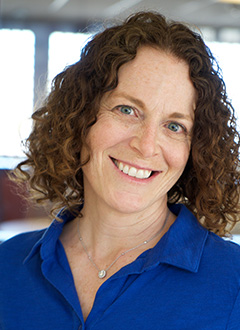
Why teach talk? Especially when there is so much competition for those precious instructional minutes? Surely other needs, goals, and standards are more deserving of your time and talent. A quick study of your class roster reveals kids who need more—more support with phonics, more work on fractions, more practice with main ideas. Aren’t those
things more foundational and more important than talk? Maybe. But talk transcends. Readers talk. Writers talk. Mathematicians, scientists, and researchers talk. Every teacher struggles with time. We all have a limited number of minutes and an ever-expanding pool of content. How do we decide?
Why teach talk? Especially when there is so much competition for those precious instructional minutes? Surely other needs, goals, and standards are more deserving of your time and talent. A quick study of your class roster reveals kids who need more—more support with phonics, more work on fractions, more practice with main ideas. Aren’t those
things more foundational and more important than talk? Maybe. But talk transcends. Readers talk. Writers talk. Mathematicians, scientists, and researchers talk. Every teacher struggles with time. We all have a limited number of minutes and an ever-expanding pool of content. How do we decide?
When you teach talk, you are teaching something that kids can use in reading, in writing, in math, in science, in social studies. When kids practice talk, they’re talking about something—and that something could be the Pythagorean theorem, or the Montgomery bus boycott, or the motivations behind Katniss’ decision to overthrow the Capitol. Talk transcends. Beliefs are only as good as the actions that reveal them.
Like reading, writing, math, art, tennis, singing, or anything else worth doing, talk is something that people can get better at. And as with any other skill, people tend to get better at talk through deliberate practice alongside powerful teaching and supportive coaching. Sometimes talk, in classrooms, is pushed aside to make room for other important standards and skills that need attention. Providing time for talk is important—but it’s not the same thing as actually teaching talk. For kids to get really strong at talk, whether in partnerships, teams, or whole-class conversations, teaching is an essential part of
the equation.
People sometimes denigrate efforts, or other people, with “oh, he’s all talk and no action.” And it’s true—sitting around talking about a dream, or a plan, or a way to make things better won’t get it done. But it’s also true that talking is often part of the process of getting things done, is part of learning, and can be part of taking your message to a wider audience. Ultimately, talking can change the world, and we’ve all seen examples of kids whose voices have done this.
Talk is part of the standards you’re asked to teach. Discussion is a powerful way to learn and process content across the curriculum. Conversation can build bonds, shaping a group of assigned strangers into a community. And in addition to all of that, talk can change the world. So when we ask, “Why talk?” one big answer is that teaching kids ways of communicating more effectively by coaching them in their talk, giving them opportunities to
practice, and inviting them to make their voices public can help kids learn how to change the world.
This blog has been adapted from Unlocking the Power of Classroom Talk.
To learn more visit Heinemann.com.
 Follow us on Instagram @heinemannpub to stay up to date on the latest books, your favorite authors, and upcoming events!
Follow us on Instagram @heinemannpub to stay up to date on the latest books, your favorite authors, and upcoming events!
 Shana Frazin is a former classroom teacher and currently Co-Director of the TCRWP Classroom Libraries Project and Senior Staff Developer at the Teachers College Reading and Writing Project. She has led leadership groups on strong readers and higher level comprehension as well as taught institutes on the teaching of reading, writing, and content area. Prior to joining the Project, Shana taught third, fourth, and fifth grades in Pasadena and Los Angeles Unified School districts, and was a faculty member at Pacific Oaks College. You can find her on Twitter at @sfrazintcrwp
Shana Frazin is a former classroom teacher and currently Co-Director of the TCRWP Classroom Libraries Project and Senior Staff Developer at the Teachers College Reading and Writing Project. She has led leadership groups on strong readers and higher level comprehension as well as taught institutes on the teaching of reading, writing, and content area. Prior to joining the Project, Shana taught third, fourth, and fifth grades in Pasadena and Los Angeles Unified School districts, and was a faculty member at Pacific Oaks College. You can find her on Twitter at @sfrazintcrwp
 As a Senior Staff Developer at the Teachers College Reading and Writing Project, Katy Wischow supports elementary and middle schools not only in New York City but also across the nation and the world. She has been an adjunct instructor at Columbia University’s Teachers College, teaching graduate courses in literacy education. Katy earned her MA in the Literacy Specialist Program at Teachers College and taught for many years in Newark, NJ. Katy is passionate about curriculum development, using the arts to develop literacy, and creating strong cultures of talk in classrooms. She is on Twitter at @kw625
As a Senior Staff Developer at the Teachers College Reading and Writing Project, Katy Wischow supports elementary and middle schools not only in New York City but also across the nation and the world. She has been an adjunct instructor at Columbia University’s Teachers College, teaching graduate courses in literacy education. Katy earned her MA in the Literacy Specialist Program at Teachers College and taught for many years in Newark, NJ. Katy is passionate about curriculum development, using the arts to develop literacy, and creating strong cultures of talk in classrooms. She is on Twitter at @kw625


